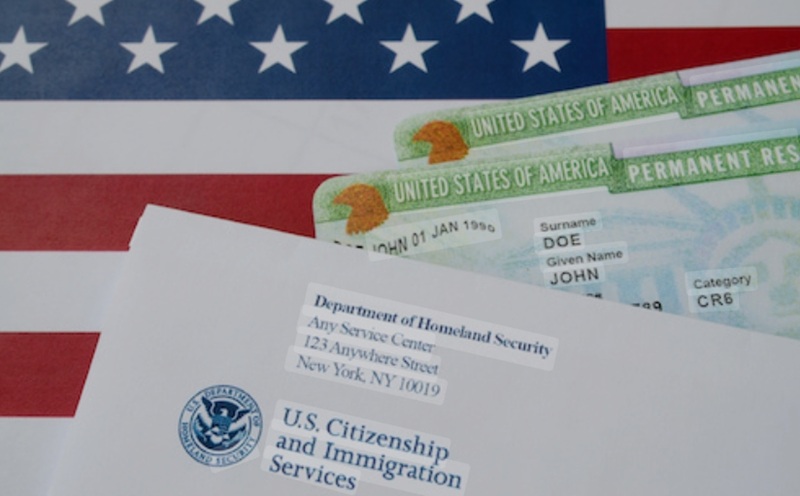The United States immigration authorities are tightening their scrutiny of green card applicants once again. The focus is on whether those seeking permanent residency can truly support themselves, without relying on government welfare programs known as public charge benefits.
According to recent reports, the U.S. Citizenship and Immigration Services (USCIS) has submitted new regulatory measures to the Office of Information and Regulatory Affairs (OIRA) that would expand the government’s ability to evaluate whether an applicant may become a financial burden to the state. In short, self-sufficiency — not reliance on public aid — is returning as a central pillar of America’s immigration policy.
Under the proposed rule, immigration officials will consider a wide range of personal factors: age, health, financial capacity, English proficiency, and even the likelihood of requiring long-term medical care. Applicants deemed at risk of becoming dependent on public assistance could be denied permanent residency.

Elderly applicants nearing retirement are expected to face even closer scrutiny, with evaluators examining their job prospects, retirement income, and ability to remain independent.
In an internal memo, the Department of Homeland Security (DHS) reaffirmed that “self-sufficiency has long been a cornerstone of U.S. immigration policy,” noting that laws limiting entry to those likely to depend on public support have existed for over a century. Officers, it emphasized, must assess all evidence — from financial documents and medical reports to affidavits of support — before making a determination.
The scope of what constitutes public assistance may also expand. During Donald Trump’s first presidency, the administration sought to include not only direct cash payments but also non-cash programs such as Medicaid, SNAP (CalFresh), Section 8 housing subsidies, and Medicare Part D. Immigrants who received these benefits for more than 12 months could be denied a green card.
That expansion was reversed by President Joe Biden in 2021, who limited the definition of public charge to cash-based programs only. But the new regulatory package now under review suggests the broader interpretation could return.
Equally significant is the renewed warning to green card sponsors — U.S. citizens or permanent residents who agree to support an immigrant financially. USCIS stressed that the Affidavit of Support (Form I-864) is not a mere formality but a legally enforceable contract.
If an immigrant who has been sponsored receives welfare benefits such as food stamps or housing assistance, the government can demand repayment from the sponsor. Failure to reimburse can lead to civil lawsuits, wage garnishment, and the recovery of legal fees.
Moreover, the immigrant beneficiary can sue the sponsor directly for financial support if the sponsor fails to meet obligations. The duties typically last until the immigrant becomes a U.S. citizen or earns 40 quarters of Social Security credit — about 10 years of full-time work. Divorce or the child reaching adulthood does not dissolve the responsibility.
A USCIS spokesperson, Matthew Tragesser, underscored the reasoning: “It is essential that sponsors and immigrants fulfill their financial responsibilities so that American taxpayers are not burdened.”
The agency also reminded sponsors that misrepresentation carries criminal penalties. Providing false income information, using another person’s identity, or submitting fraudulent documents can lead to severe sentences: up to 25 years for visa fraud, five years for false statements, and two years per count for identity theft.
These warnings come alongside USCIS’s earlier announcement that it would once again use a sponsor’s income level — specifically, whether it meets 125 percent of the federal poverty line — as a key factor in determining whether a green card can be granted.
To critics, these moves echo the stricter “public charge” framework of the Trump presidency, when the administration sought to curb immigration by raising the bar for financial independence. Supporters, however, argue that the changes are necessary to protect taxpayers and ensure that immigration benefits those capable of self-reliance.
In truth, the debate goes to the heart of American immigration philosophy: Should entry be open to anyone seeking a better life, or limited to those who can immediately sustain themselves without state aid?
The DHS has yet to formally publish the proposed regulation in the Federal Register, which would open it to public comment before enforcement. But the tone of recent statements leaves little doubt that the Trump administration is moving toward a stricter interpretation—one that emphasizes economic responsibility over humanitarian leniency.
For would-be immigrants, this means that financial preparedness, stable employment, and solid health records will carry greater weight than ever before. For sponsors — often family members — it means signing the I-864 could entail long-term financial exposure, even the risk of legal action, if the immigrant turns to public assistance.
In practical terms, both applicants and sponsors must think carefully before filing. Immigration may open doors to opportunity, but under the emerging framework, it also binds both parties to a clear message: America welcomes those who can stand on their own.
By Mooyoung Lee [lee.mooyoung@koreadaily.com]




